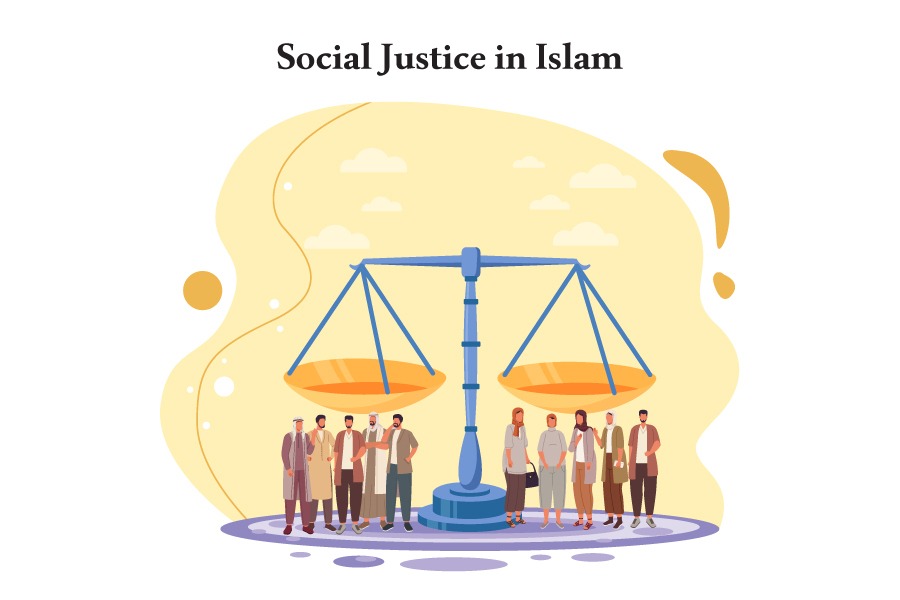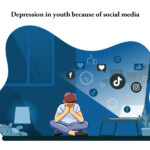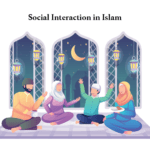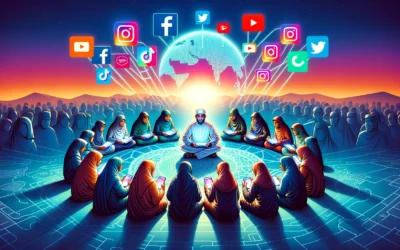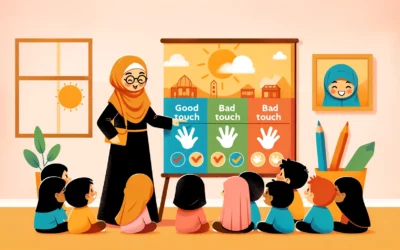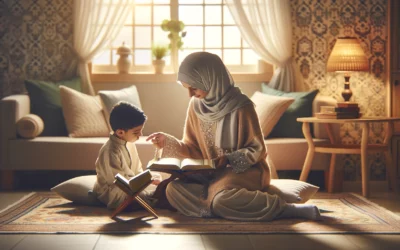In the contemporary world, where issues of inequality and unfairness persist, the principles of social justice carry profound relevance spanning diverse cultures and religions. Among these, Islam stands out as a faith that places a robust emphasis on social justice. This article delves into the concept of social justice within Islam, delving into its bedrock, guiding principles, and real-world applications.
Islam and Social Justice
Social justice in Islam refers to the fair and equitable distribution of resources, opportunities, and rights among all members of society, regardless of their background, status, or beliefs. It is a fundamental principle deeply embedded in Islamic teachings, encompassing economic, political, and moral dimensions. The concept is rooted in the belief that all individuals are equal in the eyes of God and should be treated with dignity and respect.
In Islam, social justice is not merely a charitable endeavor, but an obligation incumbent upon all Muslims. The Quran and the teachings of Prophet Muhammad (peace be upon him) emphasize the importance of caring for the less fortunate, advocating for the oppressed, and striving to create a society where everyone has access to necessities and the opportunity to lead a dignified life.
Foundation of Social Justice in Islam
The foundations of social justice serve as the fundamental principles and values that underpin efforts to create a fair and equitable society for all individuals. These foundations guide the development of policies, practices, and attitudes that address systemic inequalities, promote human rights, and ensure the well-being of every member of society. While the specific nuances may vary depending on cultural, philosophical, and ideological contexts, the following are commonly recognized foundations of social justice:
-
Equality and Equity:
Social justice is firmly rooted in the belief that every individual possesses inherent worth and, therefore, should be treated with equal respect and dignity. This core principle is beautifully encapsulated in the words of Allah in Surah Al-Hujurat, where He reminds us of the diversity of our creation
يَٰٓأَيُّهَا ٱلنَّاسُ إِنَّا خَلَقْنَٰكُم مِّن ذَكَرٍ وَأُنثَىٰ وَجَعَلْنَٰكُمْ شُعُوبًا وَقَبَآئِلَ لِتَعَارَفُوٓا۟ ۚ إِنَّ أَكْرَمَكُمْ عِندَ ٱللَّهِ أَتْقَىٰكُمْ ۚ إِنَّ ٱللَّهَ عَلِيمٌ خَبِيرٌ
O mankind, indeed We have created you from male and female and made you peoples and tribes that you may know one another. Indeed, the most noble of you in the sight of Allāh is the most righteous of you. Indeed, Allāh is Knowing and Acquainted.
(AlQuran 49:13)
This verse from the Quran emphasizes the intrinsic value of all human beings, regardless of their background, ethnicity, or origin. It underscores the importance of recognizing and embracing our differences as a means of mutual understanding and cohesion. Allah’s wisdom in creating diversity is not for division, but for fostering unity through knowledge and empathy.
-
Human Rights:
Social justice upholds the inherent rights of all people, regardless of their background, gender, ethnicity, religion, or any other characteristic. These rights include access to basic needs such as food, clean water, housing, education, healthcare, and a safe environment. The protection and promotion of human rights are central to achieving social justice.
-
Fair Distribution of Resources:
Ensuring a fair distribution of resources, including wealth, education, job opportunities, and social services, is crucial for social justice. Addressing economic disparities and challenging systems that concentrate resources in the hands of a few are essential steps toward creating a more just society.
-
Elimination of Discrimination:
Social justice seeks to eliminate all forms of discrimination, bias, and prejudice that marginalize individuals based on their identity or characteristics. This includes combating racism, sexism, homophobia, religious intolerance, and other forms of bigotry.
-
Participation and Inclusion:
Every individual should have a voice in decision-making processes that affect their lives. Inclusive participation enables marginalized groups to influence policies and systems that impact them, fostering a sense of ownership and empowerment.
-
Accountability and Rule of Law:
Social justice calls for accountability for those who abuse power or perpetrate injustices. Upholding the rule of law ensures that individuals and institutions are held responsible for their actions and that justice is served fairly.
-
Solidarity and Community Engagement:
Building a just society requires a collective effort. Social justice encourages people to stand in solidarity with those facing oppression and actively engage in efforts to create positive change.
-
Education and Awareness:
Raising awareness about social issues and educating individuals about the root causes of inequalities are important aspects of social justice. Knowledge empowers people to challenge systemic injustices and work toward meaningful solutions.
-
Interconnectedness:
Recognizing the interconnectedness of all social issues is crucial for effective social justice efforts. Problems such as poverty, discrimination, and environmental degradation are often intertwined, and addressing them requires a holistic approach.
-
Nonviolence and Peaceful Conflict Resolution:
Social justice advocates for nonviolent means of addressing conflicts and injustices. Promoting dialogue, understanding, and peaceful resolutions helps build a harmonious and just society.
The teaching of Prophet Muhammad (SAW) on Social Justice
Prophet Muhammad was an extraordinary example of good morals and ethics, and his teachings continue to inspire us today. One of his main teachings was about fairness and justice. This strong belief in justice was not just something he talked about; he lived it, and his companions, like the wise second Caliph, Omar Ibn el Khattab, followed his lead.
Omar became the second caliph, and he showed great humility. He asked the people to hold him accountable if he ever did something unfair. This showed that he believed in the equality of all people, just like the Prophet did. He understood that in the eyes of God, everyone is equal, whether they’re in charge or being led. In a meeting with his appointed leaders, Omar said something important. He told them that their role was to lead and protect the people, not to take advantage of them. He promised to fix any wrongs that they might cause. This showed his strong commitment to justice.
The companions of the Prophet also demonstrated an amazing spirit of giving and helping each other. Abu Bakr, who was the Prophet’s best friend and the first caliph, selflessly gave a huge part of his money to support poor Muslims who were suffering because of their faith. This kind of selflessness showed how they relied on each other and worked together.
Ali Ibn Aby Taleb, another companion, also showed this spirit. He shared his last three pieces of bread, which were all he had, with a poor person, an orphan, and a captive. This act of sharing was a key part of building a fair and just society.
The idea of social justice, where everyone is treated equally and supports each other, was very important in the teachings of Islam. It wasn’t just a theory; it was something the Prophet and his companions practiced. This made their society strong and united.
In today’s world, where there are often big differences between people, these teachings from Islam are even more meaningful. By looking back at what Islam teaches us, we can bring back a sense of togetherness, caring, and safety to our communities. Just like the Prophet and his companions made their world better, we can also make a positive impact by following their wise lessons about justice, equality, and working together.
Importance of Social Justice in Islam
In Islam, social justice is incredibly important and is like a foundational pillar that supports the teachings and values of the religion. It means treating everyone fairly, no matter where they come from. This idea lines up perfectly with the key values Islam teaches, like being kind, fair, and respecting the dignity of all people.
The Quran and Prophet Muhammad’s teachings highlight the significance of looking after those who are struggling, standing up for those who are treated badly, and striving to build a society where everyone has what they need to live a good life. Social justice isn’t just about giving to charity—it’s a duty for all Muslims, covering how money and resources are shared, how people are governed, and what’s right and wrong. By following the principles of social justice, Muslims aim to create a society that’s fair and peaceful, just like Allah wants and the Prophet and his companions showed.
In Islam, social justice isn’t only about personal acts of giving; it goes much further. It means making big changes in how things are organized so that everyone gets a fair chance. This includes making sure that people who are often left out are given opportunities and support.
The teachings of Islam deeply emphasize treating everyone equally and fairly, no matter how rich or poor they are. There’s a famous part in the Quran (Surah Al-Hujurat, 49:13) that talks about how the most respected people in the eyes of Allah are the ones who act rightly and show devotion, no matter who they are. This idea is seen in how the Prophet and his companions lived, especially leaders like Omar Ibn el Khattab, who were known for being just and humble. The ongoing importance of social justice in Islam lies in its power to bring people together, show kindness, and help everyone in society succeed and make positive contributions.
Conclusion
The idea of social justice is super important and goes beyond things like where people come from or what they believe. Our world still has a lot of problems with things being unfair and unequal. This is where the idea of social justice comes in—it’s like a superhero that can make good things happen. Islam, which is a whole way of living, believes strongly in social justice. It means caring about things being fair, being kind to others, and treating everyone with respect.
For us, these teachings are a big deal. They come from the Quran and the things Prophet Muhammad and his companion did. Social justice is like a reminder for us to treat everyone nicely and fairly. Islam teaches us to help people who need it, stand up against bad treatment, and bring people together.
Muslims are asked to actually live out these ideas in their everyday lives. It’s not just about what’s good for one person; it’s about making the whole world a better and fairer place. By following these teachings, Muslims can make the world a cooler place to be, showing the kind of world Allah wants and the awesome things their faith’s leaders did. In a world where some people have more opportunities than others, bringing social justice to life is like using their faith to make things better for everyone.



